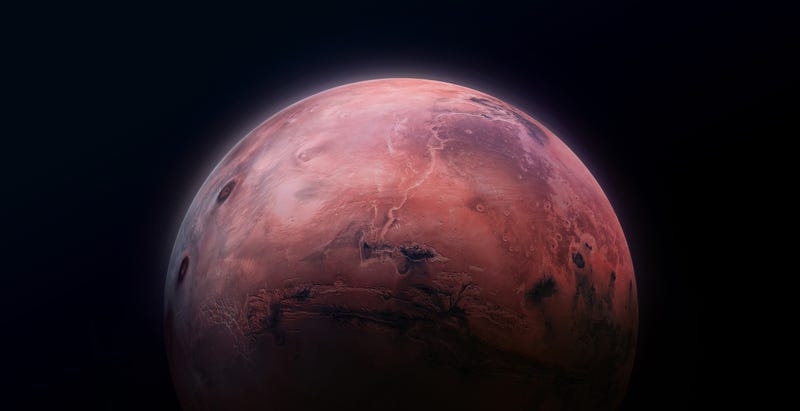
New research is suggesting that ancient microbial life existed on Mars, but it destroyed the planet's atmosphere, creating climate change and effectively leading to its extinction.
A study published last week in the journal Nature Astronomy proposes a theory that hydrogen-consuming, methane-producing microbes lived on Mars roughly 3.7 billion years ago.
According to the theory, when the microbes were alive on Mars, the planet's atmosphere was similar to those that existed on ancient Earth around the same time. However, the microbes didn't create an environment that would help them thrive like what happened on Earth.
Instead, Martian microbes are believed to have doomed themselves just as they were getting started. The main reason scientists believe Mars was doomed was the gas compositions of the two planets and their distance from the sun.
While life on Earth thrived because it was closer to the sun, Mars relied on a potent fog of heat-trapping greenhouse gasses to maintain hospitable temperatures. But the microbes were responsible for eating one of the greenhouse gasses, hydrogen slowly eating into their planet's heat-trapping blanket.
This resulted in Mars becoming so cold — going from having lows of 14 degrees Fahrenheit, to highs of only minus 70 degrees — that all life is believed to have burrowed deeper into the planet's crust, stopping the evolution into complex life that was seen on Earth.
But, like with any theory, there needs to be proof.
Researchers have searched for evidence to back up their theory, pointing to traces of methane, the byproduct of the microbes eating hydrogen, discovered by NASA in the planet's atmosphere and the form of methane on the planet called "alien burps," discovered by NASA's Curiosity rover.
The findings come to the overall conclusion that life may not be innately self-sustaining in every conductive environment it is found. It also suggests it has the possibility of destroying the foundations of its own existence and causing self-extinction with ease.
Boris Sauterey is the lead author of the study, and he told Space.com that "the ingredients of life are everywhere in the universe."
"It's possible that life appears regularly in the universe. But the inability of life to maintain habitable conditions on the surface of the planet makes it go extinct very fast," Sauterey said. "Our experiment takes it even a step farther as it shows that even a very primitive biosphere can have a completely self-destructive effect."
LISTEN on the Audacy App
Sign Up and Follow Audacy
Facebook | Twitter | Instagram

